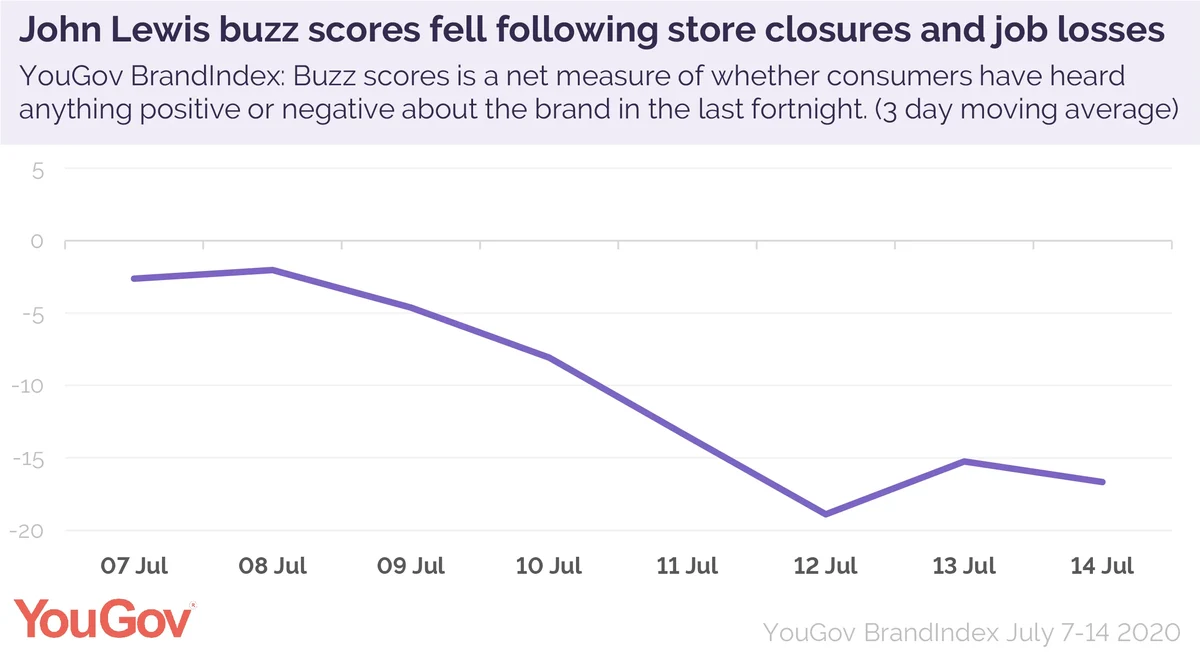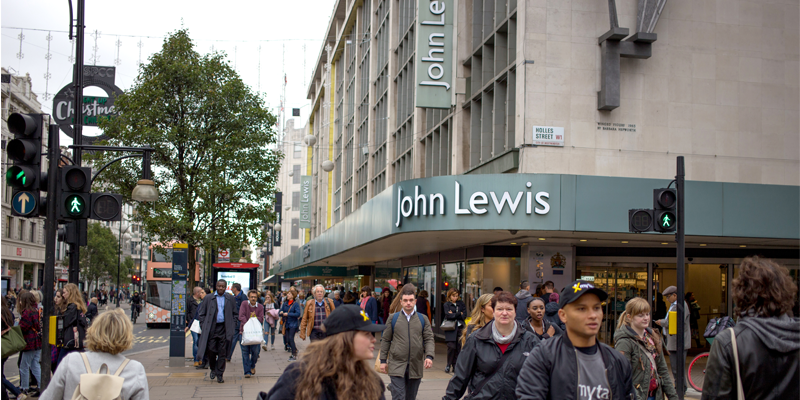Among UK retailers, John Lewis has an unusual degree of public affection: it is perhaps one of the only retailers where its advertising campaigns are an anticipated national event. YouGov data shows that it is the UK’s healthiest and most recommended high street brand.
Unfortunately for the retailer, public goodwill only goes so far – and it has not fully protected this general good warmth from the adverse effects of the COVID-19 pandemic.
YouGov BrandIndex shows that, after John Lewis announced eight store closures and the loss of up to 1,300 jobs on July 9, its performance declined across several metrics. Buzz scores (a net measure of whether respondents have heard something positive or negative about a brand) plummeted from -2.0 to -18.9 between July 8 and July 12 – suggesting that the story cut through with the public – while impressions, which gauge whether people have a positive or negative impression of a brand, also declined from 52.6 to 46.0 during the same period. The company’s reputation (a net measure of whether respondents would be proud to work for a brand or not) which made it first choice for employee pride last year, fell from 50.3 to 43.4.

Beyond the impact on public perceptions of John Lewis, the announcement may have had implications from a commercial perspective. Consideration scores, which measure whether people would consider purchasing from a brand when they’re next in the market, dropped from 43.3 to 35.8 between July 8 and July 14, while purchase intent (which measures whether customers are likely to purchase from a brand) fell from 15.6 to 10.1 between July 8 and July 17.
Job losses and store closures are never likely to be popular, and the impact may have been worse for John Lewis: the retailer is known for operating as a trust that redistributes profits back to employees, and a story about mass redundancies runs somewhat counter to its general brand image.
The announcement may have also been especially ill-timed – arriving at a time when consumer confidence has finally edged back into positive territory, potentially blunting the impact of its UK-wide reopening.











